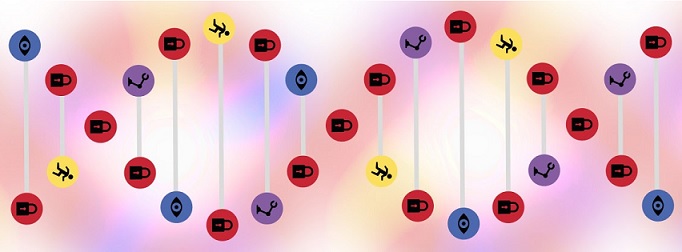SmartBear announced a new version of its API design and documentation tool, SwaggerHub, integrating Stoplight’s API open source tools.
Today’s digital economy is fueled by software. When software is developed with security integrated from the start — a practice and approach commonly known as DevSecOps — the risk of data breaches is greatly diminished, providing users with heightened levels of confidence and trust when engaging with applications and services that are so ubiquitous in our online world.

According a new survey from CA Technologies — Integrating Security into the DNA of Your Software Lifecycle — the majority of respondents confirmed that software development supports growth and expansion, helps businesses compete and drives digital transformation. And yet, the findings show that, as software becomes more critical to business success in the digital economy, security concerns are exponentially on the rise.
In fact, 74 percent of respondents agreed that security threats due to software and code issues is a growing concern. CA Veracode’s State of Software Security Report 2017 found that vulnerabilities continue to crop up in previously untested software at alarming rates, with 77 percent of apps having at least one vulnerability on initial scan.
Creating a culture of secure software development is a major challenge, according to the survey findings. An overwhelming 58 percent of respondents cited existing culture and lack of skills as hurdles to being able to embed security testing and evaluation within software development processes. Only 24 percent strongly agreed that the organization’s culture and practices supported collaboration across development, operations and security. On top of cultural limitations, less than a quarter of respondents strongly agreed that senior management would sacrifice time to market in order to have sufficient time to assess and repair software security vulnerabilities.
Security is a key principle in any Modern Software Factory. While our survey findings confirm an overarching recognition in the importance of ensuring that data and systems are built and maintained securely, there is still a lack of cultural adoption within organizations around this pressing issue. When coupled with security, Intelligent IT – the use of AI, machine learning and analytics to make better, more informed decisions – can dramatically change the way that business is done.
The report showcases characteristics of “Software Security Masters” (the top 34 percent of respondents), which are organizations that have been able to fully integrate security into their software development lifecycles. This includes conducting early and continuous application testing for security vulnerabilities, as well as embracing the practice of DevSecOps.
In fact, when compared with the mainstream, respondents from the Software Security Masters were over two times more likely to strongly agree that they viewed security as an enabler of new business opportunities. These organizations also exhibited the following attributes:
■ 50 percent higher profit growth
■ 40 percent higher revenue growth
■ Are 2.6x more likely to have security testing keep up with frequent app updates
■ Are 2.5x more likely to be outpacing their competitors
The organizations labeled as Software Security Masters are the beacons of hope in today's digital economy. Not only do they exemplify and represent the cultural mindset necessary to adapt and thrive in today's dynamic market, they are influencing change within the industry while shaping the workplace of the future.

Survey Methodology: The global online survey of 1,279 senior IT and business executives was sponsored by CA Technologies and conducted by industry analyst firm Freeform Dynamics in July 2017. It was augmented by in-depth telephone interviews with key industry executives.
Industry News
Red Hat announced updates to Red Hat Trusted Software Supply Chain.
Tricentis announced the latest update to the company’s AI offerings with the launch of Tricentis Copilot, a suite of solutions leveraging generative AI to enhance productivity throughout the entire testing lifecycle.
CIQ launched fully supported, upstream stable kernels for Rocky Linux via the CIQ Enterprise Linux Platform, providing enhanced performance, hardware compatibility and security.
Redgate launched an enterprise version of its database monitoring tool, providing a range of new features to address the challenges of scale and complexity faced by larger organizations.
Snyk announced the expansion of its current partnership with Google Cloud to advance secure code generated by Google Cloud’s generative-AI-powered collaborator service, Gemini Code Assist.
Kong announced the commercial availability of Kong Konnect Dedicated Cloud Gateways on Amazon Web Services (AWS).
Pegasystems announced the general availability of Pega Infinity ’24.1™.
Sylabs announces the launch of a new certification focusing on the Singularity container platform.
OpenText™ announced Cloud Editions (CE) 24.2, including OpenText DevOps Cloud and OpenText™ DevOps Aviator.
Postman announced its acquisition of Orbit, the community growth platform for developer companies.
Check Point® Software Technologies Ltd. announced new email security features that enhance its Check Point Harmony Email & Collaboration portfolio: Patented unified quarantine, DMARC monitoring, archiving, and Smart Banners.
Automation Anywhere announced an expanded partnership with Google Cloud to leverage the combined power of generative AI and its own specialized, generative AI automation models to give companies a powerful solution to optimize and transform their business.
Jetic announced the release of Jetlets, a low-code and no-code block template, that allows users to easily build any technically advanced integration use case, typically not covered by alternative integration platforms.
Progress announced new powerful capabilities and enhancements in the latest release of Progress® Sitefinity®.




